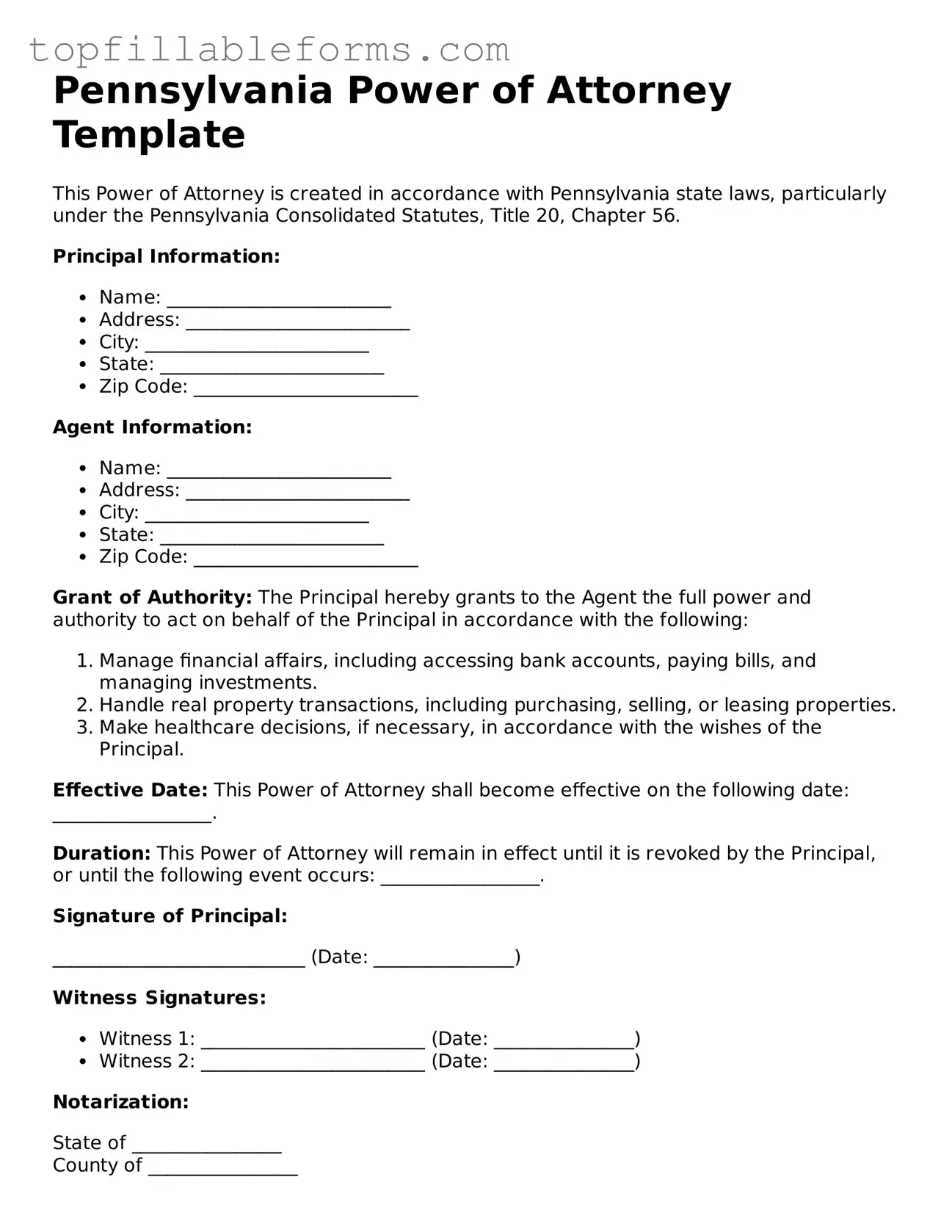Attorney-Verified Power of Attorney Template for Pennsylvania
The Pennsylvania Power of Attorney form is a legal document that allows one person to grant another person the authority to make decisions on their behalf. This can include managing finances, making healthcare decisions, or handling legal matters. Understanding this form is essential for anyone considering delegating authority to another individual in Pennsylvania.
Open Power of Attorney Editor Here

Attorney-Verified Power of Attorney Template for Pennsylvania
Open Power of Attorney Editor Here
Finish the form now and be done
Finish your Power of Attorney online by editing, saving, and downloading fast.
Open Power of Attorney Editor Here
or
▼ PDF File
